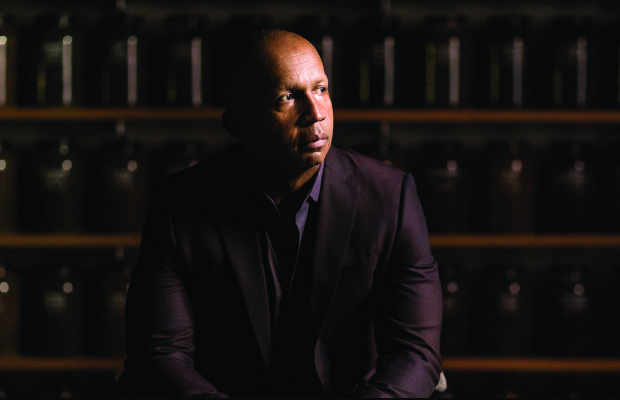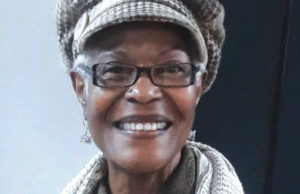BRYAN STEVENSON

The Transformational Agenda Magazine 26th Edition
FOUNDER & EXECUTIVE DIRECTOR THE EQUAL JUSTICE INITIATIVE
Born in 1959, Stevenson grew up in Milton, Delaware, a small rural town located in Southern Delaware. His family attended the Prospect African Methodist Episcopal Church, and his later views were influenced by the strong faith experienced when churchgoers were celebrated for ‘standing up after having fallen down.’ These experiences informed his belief that “each person in our society is more than the worst thing they’ve ever done.”
When Stevenson was sixteen, his maternal grandfather, Clarence L. Golden, was stabbed to death in his Philadelphia home during a robbery. The killers received life sentences, an outcome Stevenson thought fair. Stevenson said of the murder: “Because my grandfather was older, his murder seemed particularly cruel. But I came from a world where we valued redemption over revenge.”
As a child, Stevenson dealt with segregation and its legacy. He spent his first classroom years at a “colored” elementary school. By the time he entered the second grade, his school was formally desegregated, but the old rules from segregation still applied. Stevenson’s father, having grown up in the area, took the ingrained racism in stride, but not his mother. When the black children from town lined up at the back door of the polio vaccination station to receive their shots, waiting hours while the white children went in first—his mother protested.
Stevenson attended Cape Henlopen High School and graduated in 1977. He played on the soccer and baseball teams. He also served as president of the student body and won American Legion public speaking contests. Stevenson earned straight A’s and won a scholarship to Eastern University in St. Davids, Pennsylvania.
He received a full scholarship to attend Harvard Law School. During law school he worked for Stephen Bright’s Southern Center for Human Rights. It represents death-row inmates throughout the South. During this work, Stevenson found his career calling. While at Harvard, he also earned a Master’s in Public Policy at the John F. Kennedy School of Government.
When the United States Congress eliminated funding for death-penalty defense for lower income people after Republicans gained control in the 1994 mid-term elections, Stevenson founded the non-profit Equal Justice Initiative (EJI) in Montgomery, Alabama. In 1995 he was awarded a MacArthur grant and put all the money toward supporting the center. He guaranteed a defense of anyone in Alabama sentenced to the death penalty, as it was the only state that did not provide legal assistance to people on death row. It also has the highest per capita rate of death penalty sentencing.
Bryan Stevenson has been particularly concerned about overly harsh sentencing of persons convicted of crimes committed as children, under the age of 18. EJI mounted a litigation campaign to gain review of cases in which convicted children were sentenced to life-without-parole, including in cases without homicide. In 2012 he successfully argued Miller v. Alabama, in which the US Supreme Court ruled in a landmark decision that mandatory sentences of life-without-parole for children 17 and under were unconstitutional; this decision has affected statutes in 29 states. In 2016, the court ruled in Montgomery v. Louisiana that this decision had to be applied retroactively, potentially affecting the sentences of 2300 people nationwide who had been sentenced to life while still children.
The EJI offices are near the landing at the Alabama River where slaves were unloaded in the domestic slave trade; an equal distance away is Court Square, “one of the largest slave-auction sites in the country.”
Stevenson acquired six acres of former public housing land in Montgomery for the development of a new project, the “National Memorial for Peace and Justice”, to commemorate the nearly 4,000 persons who were lynched in the South from 1877 to 1950. Many lynchings were conducted openly in front of mobs and crowds in county courthouse squares. Stevenson argues this history of extrajudicial lynchings by white mobs is closely associated with the subsequent high rate of death sentences imposed in Alabama and other southern states, and to their disproportionate application to minority people. He further argues that this history influences the bias against minorities as expressed in disproportionately high mass incarceration rates for them across the country. The memorial opened in April 2018.
He also worked to create a related museum, The Legacy Museum: From Enslavement to Mass Incarceration. Exhibits in the former slave warehouse include materials on lynching, racial segregation, and mass incarceration since the late 20th century. Stevenson articulates how the treatment of people of color under the criminal justice system is related to the history of slavery and later treatment of minorities in the South.
Stevenson wrote the critically acclaimed memoir “Just Mercy: A Story of Justice and Redemption”. It was selected by Time magazine as one of the “10 Best Books of Nonfiction” for 2014 and was among the New York Times “100 Notable Books” for the year. It won the 2015 Andrew Carnegie Medal for Excellence in Nonfiction.
Stevenson conducts an active public speaking schedule, in large part for fundraising for the work of EJI. His speech at TED2012 in Long Beach, California brought him a wide audience on the Internet. Following his presentation, attendees at the conference contributed more than $1 million to fund a campaign run by Stevenson to end the practice of placing convicted children to serve sentences in adult jails and prisons. His talk is available at “We need to talk about an injustice” on the TED website; by August 2019, it had been viewed more than 5.8 million times.
Stevenson has been a commencement speaker and received numerous honorary degrees, including from the following institutions: Williams College, Loyola University Chicago, Wesleyan University, University of Mississippi, and Northeastern University.
[It is hoped that you will share and discuss this profile of almost 1000 words with a youth—for inspiration and as example of what a single person, born into a family of modest means and living in a small town can accomplish—by applying himself and by having adults who encouraged him, kept him engaged with positive endeavors in order to not have time to get into trouble, and who guided him to be able to find opportunities, in order to realize the potential, which we all possess. Please be sure to share with them that while positive parenting is advantageous—that they can serve this role for their self, and/or find someone who will gladly mentor a youth possessing positive energy and seeking opportunity.]
The Transformational Agenda Magazine 26th Edition





You must be logged in to post a comment Login